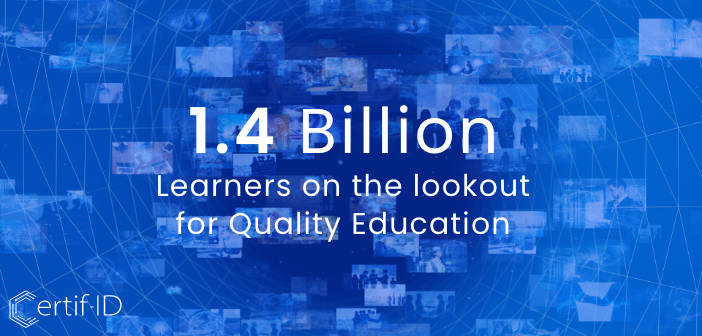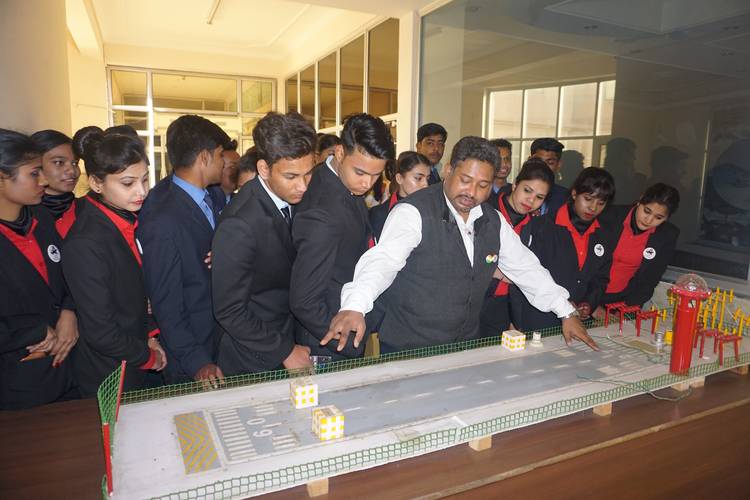The Edtech sector in Indian is on a roll, and for good reason too.
There are a reported 1.4 billion learners on the lookout for quality education. 50% of the country’s population is below the age of 25. 260 million students are currently enrolled across 1.5 million schools.
As a developing country, India has seen the rise of societies with increased disposable income. So, more individuals are able to afford an education. Not only is mainstream education popular but also many short-term courses. Young adults are willing to take up alternate routes to learn new skills. This has led to a rise in online courses to short-term certification programs.
Another factor in India that drives learning is internet connectivity. Networks are available in remote corners of India, making it easy for people to access learning resources.
Little wonder then, that the country sees an inflow of 10% of global Edtech VC funding. It is also home to the world’s most valuable Edtech startup, which has a valuation of $5.8 billion. There are other solutions across segments including test preps, Massive Open Online Courses (MOOCs) and online tuitions.
Also, considering that technologies such as artificial intelligence and cloud computing will define our future, the Indian government has taken a massive initiative to upskill its workforce. It is promoting the need for individuals to learn skills in emerging technologies.
Yet, it must be said that the strength in numbers can prove a challenge itself.
 The issue – Quality of education
The issue – Quality of education
Access to education is important. But are students gaining real knowledge and skills and not mere information to pass an exam?
After all, the quality of education provides the outcomes needed for individuals and societies to prosper.
There are over 50,000 higher education institutions and 13,000 industrial training institutions in India. And, issues about the quality of education and issuing valid certifications is rising.
This may be due to the lack of a standard curriculum and assessing methods across borders and time.
Indeed, with the lack of a review system for educational institutions, students often suffer. Either they are forced to enrol themselves into the most famous (read well-advertised) institute or institutes championed by distant well-wishers. The end result in such cases is quite unfortunate. As students receive training that is nowhere close to industry standards.
Besides this, there is also the rising case of fake certification and courses. And, students tampering with their credentials. This affects the lives of individuals and the recruitment process.
The lack of upholding educational standards and discrepancy in the educational certificate is a major hindrance to both recruiters and the government. Employers waste a lot of money on sourcing, screening and verifying candidates’ credentials. And, it becomes hard for the government to state why people are not finding jobs even after they are educated.
This entire education and employment landscape needs
- Transparency
- Harmonising of educational standards
This will bring together Edtech institutions and students and will also establish a sense of trust in the process.
A solution that will bring trust and harmonise educational standards
Blockchain technology! To be more precise, a platform built on blockchain technology.
An example: Certif-ID. Certif-ID is a platform for educational institutions, working professionals and recruiters to connect.
It allows students/technical experts to connect with world-class training institutions. Educational institutions who have been reviewed by third-party organizations such as TUV Rheinland. This will help students to make an informed decision about signing up to a course. Also, the education and certification they will receive.
An educational institute on the platform can list courses, manage training batches and issue certificates. Thereby, this blockchain-based platform minimises the possibility of fraudulent certifications being issued. Nor can individuals tamper with their credentials.
The reason is that whenever an institution issues a certificate on Certif-ID an unalterable link is created between a candidate’s achievement and the institute. This link is unchangeable and can be traced back to its origin.
Once a certificate is issued, it is stored in a secure digital space – Certif-ID’s certificate wallet. It further enhances the integrity of the data.
Through the platform, an individual can share his/her credentials with a recruiter. Recruiters can not only access the credentials but also verify it with a single click. This reduces the amount of effort taken to validate a candidate’s records.
Certif-ID also offers other features like course management and student enrolment, among others. Minimising administrative work, it allows institutes and students to focus on what is required.
Certif-ID is playing a significant role in bringing transparency and harmonising educational standards.
To find out more about the advantages of blockchain technology, write to us here.
And to transform the process in your educational institute, please schedule a demo right here.
Watch out for the next blog which will talk about benefits for recruiters!














Comments 2